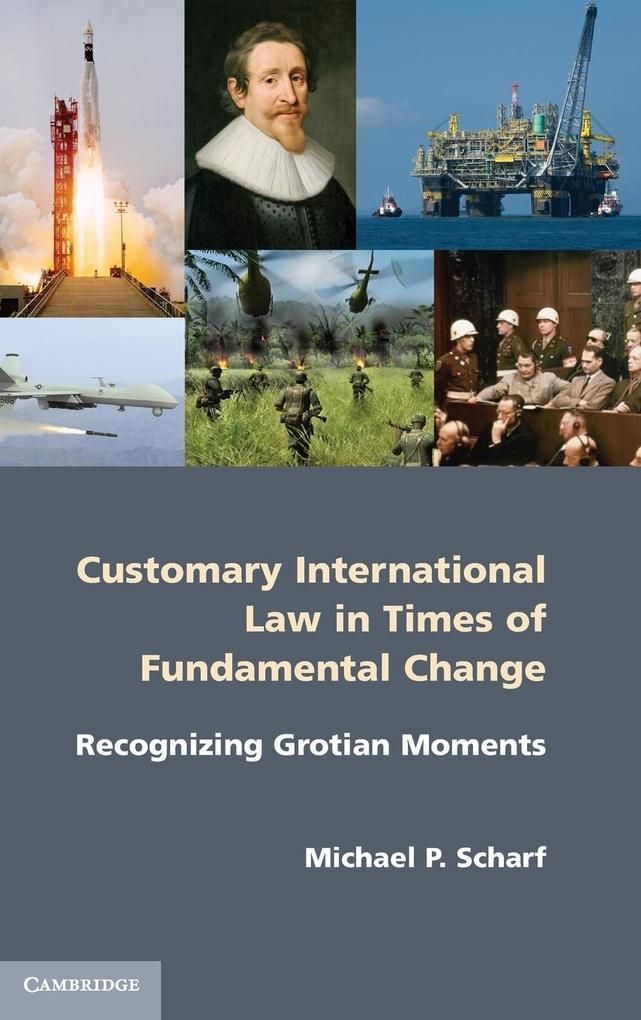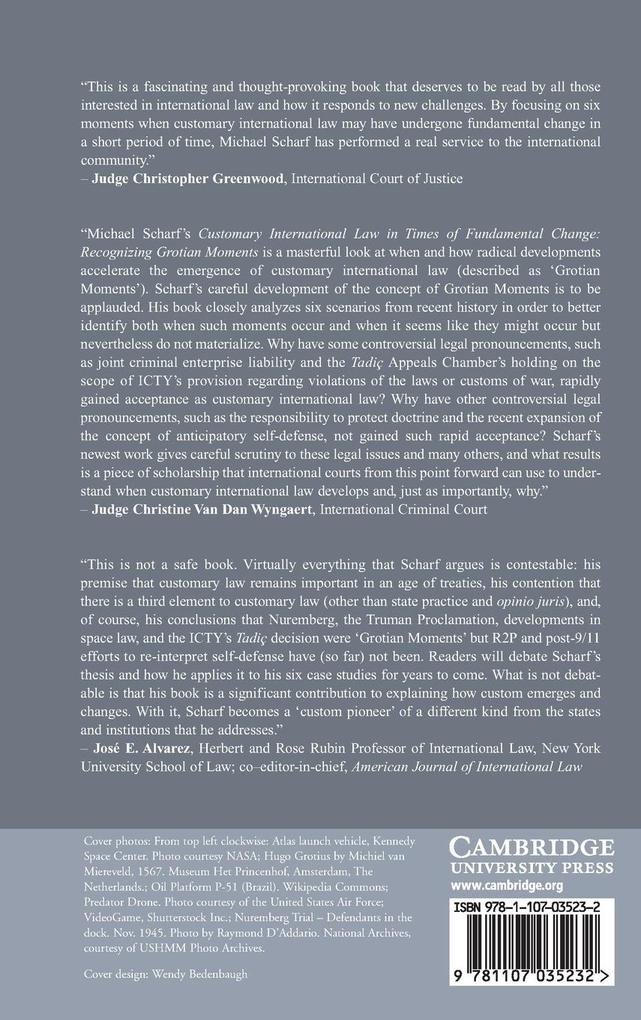
Zustellung: Mo, 07.07. - Fr, 11.07.
Versand in 2 Wochen
VersandkostenfreiBestellen & in Filiale abholen:
The first book to explore the concept of 'Grotian Moments', named for Hugo Grotius, who helped marshal in the modern system of international law.
Inhaltsverzeichnis
1. Introduction; 2. Historical context; 3. Theoretical underpinnings; 4. Nuremberg as Grotian moment; 5. The Truman proclamation on the continental shelf; 6. Outer space law; 7. The Yugoslavia tribunal's Tadic decision; 8. The responsibility to protect doctrine; 9. The response to 9/11; 10. Conclusion.
Produktdetails
Erscheinungsdatum
31. Mai 2013
Sprache
englisch
Seitenanzahl
237
Autor/Autorin
Michael P Scharf
Verlag/Hersteller
Produktart
gebunden
Gewicht
509 g
Größe (L/B/H)
235/157/18 mm
ISBN
9781107035232
Entdecken Sie mehr
Pressestimmen
"This is not a safe book. Virtually everything that Scharf argues is contestable: his premise that customary law remains important in an age of treaties, his contention that there is a third element to customary law (other than state practice and opinio juris), and, of course, his conclusions that Nuremberg, the Truman Proclamation, developments in space law, and the ICTY's Tadic decision were "Grotian" moments but R2P and post 9/11 efforts to re-interpret self-defense have (so far) not been. Readers will debate Scharf's thesis and how he applies to his six case studies for years to come. What is not debatable is that his book is a significant contribution to explaining how custom emerges and changes. With it, Scharf becomes a "custom pioneer" of a different kind than the states and institutions that he addresses." -- Jose E. Alvarez, Herbert and Rose Rubin Professor of International Law, New York University School of Law; co-editor in chief, American Journal of International Law "Michael Scharf's Customary International Law in Times of Fundamental Change: Recognizing Grotian Moments is a masterful look at when and how radical developments accelerate the emergence of customary international law (described as "Grotian Moments"). Scharf's careful development of the concept of Grotian Moments is to be applauded. His book closely analyses six scenarios from recent history in order to better identify both when such moments occur and when it seems like they might occur but nevertheless do not materialize. Why have some controversial legal pronouncements, such as joint criminal enterprise liability and the Tadic Appeals Chamber's holding on the scope of ICTY's provision regarding violations of the laws or customs of war, rapidly gained acceptance as customary international law? Why have other controversial legal pronouncements, such as the responsibility to protect doctrine and the recent expansion of the concept of anticipatory self-defense, not gained such rapid acceptance? Scharf newest work gives careful scrutiny to these legal issues and many others, and what results is a piece of scholarship from which international courts from this point forward can use to understand when customary international law develops and, just as importantly, why." -- Judge Christine Van den Wyngaert, International Criminal Court "This is a fascinating and thought-provoking book which deserves to be read by all those interested in international law and how it responds to new challenges. By focusing on six moments when customary international law may have undergone fundamental change in a short period of time, Michael Scharf has performed a real service to the international community." -- Judge Christopher Greenwood, International Court of Justice
Bewertungen
0 Bewertungen
Es wurden noch keine Bewertungen abgegeben. Schreiben Sie die erste Bewertung zu "Customary International Law in Times of Fundamental Change" und helfen Sie damit anderen bei der Kaufentscheidung.










